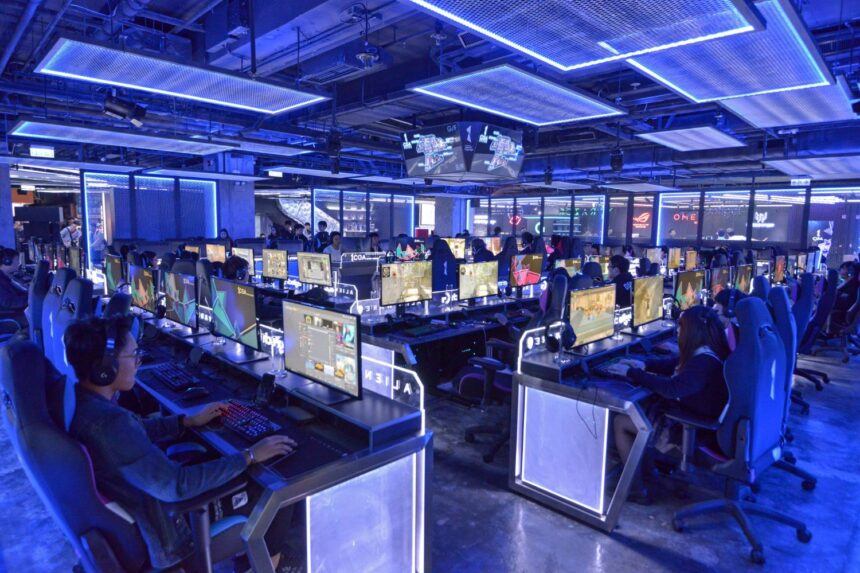Hong Kong has long been recognized as a vibrant hub for entertainment and cultural activities, and its video gaming sector is no exception. With a diverse market and a tech-savvy population, the city has cultivated a thriving gaming industry. Recently, the growing adoption of Generative AI (GenAI) is poised to further elevate this sector, driving innovation, enhancing user experiences, and expanding creative possibilities.
The Current Landscape of Hong Kong’s Gaming Industry
As of 2023, Hong Kong’s video gaming industry contributes significantly to the city’s economy, with millions of players engaging in various games across platforms, including mobile, PC, and console. The market is characterized by a blend of local and international game developers, creating a rich tapestry of gaming content that appeals to a wide audience.
The region is home to several successful gaming companies, which have produced popular titles that resonate with both local and global players. However, as competition intensifies and players’ expectations evolve, the industry faces the challenge of keeping pace with technological advancements and changing consumer preferences.
The Rise of Generative AI
Generative AI, a subset of artificial intelligence that focuses on creating content, has gained traction across various industries, including gaming. By leveraging machine learning algorithms, GenAI can generate art, narratives, music, and even complex game mechanics in real time. This technology has the potential to revolutionize the gaming sector in Hong Kong in several key ways:
1. Enhanced Game Design and Development.
GenAI can significantly streamline the game development process. Developers can use AI-generated assets, such as characters, environments, and soundtracks, reducing the time and resources required to create high-quality games. This acceleration allows developers to focus on gameplay mechanics and storytelling, essential elements for player engagement.
2. Personalised Gaming Experiences.
As players seek more immersive and tailored experiences, GenAI can analyze player behavior and preferences to generate customized content. This could include adaptive difficulty levels, personalized quests, or even unique storylines based on individual choices. Such personalization enhances player satisfaction and retention, creating a more loyal user base.
3. Procedural Content Generation.
GenAI can facilitate the creation of expansive game worlds and content through procedural generation techniques. By generating levels, quests, and environments dynamically, games can offer virtually endless replayability, keeping players engaged for longer periods. This approach can lead to a more varied and exciting gaming experience, appealing to both casual and hardcore gamers.
4. Innovative Storytelling.
With the ability to generate narratives on the fly, GenAI can enable more complex and branching storylines. This technology allows players to experience narratives that evolve based on their decisions, creating a sense of agency and investment in the game world. Such interactive storytelling can attract players looking for deeper, more meaningful gaming experiences.
Opportunities for Growth
The integration of GenAI into Hong Kong’s gaming sector presents significant opportunities for growth. As developers embrace this technology, there is potential for the creation of new genres and gameplay mechanics that have yet to be explored. Furthermore, as players become increasingly familiar with AI-generated content, the demand for innovative gaming experiences is likely to rise.
Hong Kong’s strategic location as a gateway to both Eastern and Western markets positions it well to capitalize on the global gaming industry’s growth. By fostering a supportive ecosystem for game developers and promoting collaboration between tech companies and gaming studios, Hong Kong can establish itself as a leader in the GenAI-driven gaming revolution.
Challenges and Considerations
While the opportunities are promising, several challenges must be addressed to fully leverage the potential of GenAI in gaming. Issues related to intellectual property rights, ethical considerations in AI-generated content, and the need for regulatory frameworks to ensure fair play and transparency will need careful examination.
Moreover, there is a need for talent development in AI and gaming. Encouraging educational institutions to offer programs focused on AI, game development, and related fields will be crucial in building a skilled workforce capable of driving innovation in the sector.
Hong Kong’s video gaming sector stands on the brink of transformation, fueled by the growing adoption of Generative AI. As developers leverage this technology to enhance game design, create personalized experiences, and innovate storytelling, the potential for growth is immense. By embracing these advancements and addressing associated challenges, Hong Kong can strengthen its position as a key player in the global gaming industry, delivering exciting and diverse experiences to players both locally and around the world.
ALSO READ: China unveils new gaming curbs, sending tech stocks tumbling
The gaming industry in Hong Kong has its unique characteristics, strengths, and challenges compared to other major gaming hubs worldwide.
1. Market Size and Revenue
Hong Kong.
The gaming market in Hong Kong is significant, driven by a strong mobile gaming culture and a high penetration of smartphones. However, it is smaller than major hubs like China or North America. The revenue generated is substantial but may not reach the levels seen in larger markets.
North America.
The United States and Canada boast one of the largest gaming markets globally, with revenues exceeding $40 billion annually. The presence of major publishers and developers, alongside a diverse gaming population, contributes to this robust market.
China.
As the world’s largest gaming market, China’s gaming industry generates over $40 billion annually, with a massive user base and a strong focus on mobile gaming. The government’s regulations significantly impact market dynamics, more so than in Hong Kong.
Japan.
Japan has a rich gaming heritage, with a strong market for console and handheld gaming. The industry is worth around $20 billion, with major companies like Nintendo, Sony, and Capcom leading the way.
South Korea.
Known for its esports scene and online gaming, South Korea has a gaming market valued at approximately $6 billion. The country has a robust infrastructure for competitive gaming, with significant investments in esports.
2. Game Development and Innovation
Hong Kong.
The development scene in Hong Kong is growing, with a mix of local studios and international collaborations. However, it still lags behind larger hubs in terms of the number of major titles produced. The burgeoning interest in generative AI is beginning to reshape the development landscape.
North America.
Home to major studios like Electronic Arts, Activision Blizzard, and Epic Games, North America leads in game development innovation and high-budget AAA titles. The region has a diverse range of gaming genres and a strong indie scene.
China.
Chinese developers are rapidly emerging, producing popular mobile games and online titles. The focus is often on social and multiplayer experiences, with significant investment in technology and game design.
Japan.
Known for its unique art styles and storytelling, Japan excels in console and RPG games. Companies like Square Enix and Bandai Namco produce iconic franchises that resonate worldwide.
South Korea.
The country is a leader in online gaming and mobile applications. South Korean companies like Nexon and NCSoft are known for their MMORPGs and have a strong focus on esports.
3. Cultural Influence and Regulation
Hong Kong.
The gaming culture in Hong Kong is influenced by both Eastern and Western trends, leading to a diverse gaming landscape. However, regulatory challenges exist, particularly concerning content and online gaming.
North America.
The gaming culture is diverse and inclusive, with a significant focus on community and competitive gaming. Regulations are generally more lenient, allowing for creative freedom.
China.
The Chinese government imposes strict regulations on gaming content, playtime, and monetization, heavily influencing game development and distribution. This creates a unique market environment compared to Hong Kong.
Japan.
Japanese gaming culture places a strong emphasis on narrative and character development, with regulations that can sometimes limit certain content but generally foster creativity.
South Korea.
The government actively supports the gaming industry, particularly in esports, leading to a thriving competitive scene. Regulations are in place to protect minors and promote fair play.
4. Esports and Community Engagement
Hong Kong.
The esports scene is growing, with increasing participation in tournaments and events. However, it is still developing compared to established markets like North America and South Korea.
North America.
A major player in the global esports ecosystem, North America hosts numerous high-profile tournaments and has significant investment in esports teams and leagues.
China.
Esports is immensely popular in China, with large audiences and significant investments. The government recognizes esports as a legitimate industry, further propelling its growth.
Japan.
While esports is gaining traction, traditional gaming culture still dominates. Major tournaments are held, but the industry is not as commercialized as in other regions.
South Korea.
Renowned for its esports culture, South Korea has produced top-tier players and teams across various games. The country has a robust infrastructure for esports, including dedicated arenas and high viewership.
While Hong Kong’s gaming industry is vibrant and growing, it faces challenges in scaling up compared to major global hubs like North America, China, Japan, and South Korea. The unique blend of Eastern and Western influences provides opportunities for innovation, particularly with the rise of technologies like generative AI. However, to compete on a larger scale, Hong Kong may need to focus on fostering a more robust development ecosystem, improving regulatory conditions, and enhancing community engagement in esports.
ALSO READ: Saudi Arabia’s strategic leap into the global gaming arena: Video game dominance













